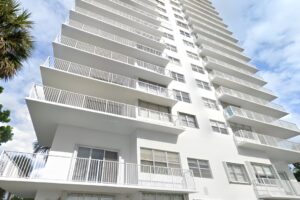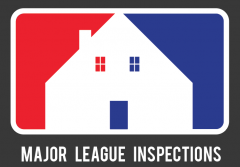 Purchasing a new home is an exciting milestone, but the process can also be overwhelming, especially when it comes to navigating the inspection process. While many people are familiar with the standard home inspection, the unique nature of condominium living requires a distinct approach. In this comprehensive guide, we’ll explore the key differences between condo inspections and traditional home inspections, empowering you to make informed decisions and ensure your investment is protected.
Purchasing a new home is an exciting milestone, but the process can also be overwhelming, especially when it comes to navigating the inspection process. While many people are familiar with the standard home inspection, the unique nature of condominium living requires a distinct approach. In this comprehensive guide, we’ll explore the key differences between condo inspections and traditional home inspections, empowering you to make informed decisions and ensure your investment is protected.
Understanding Condo Inspections
A condo inspection is a specialized assessment that focuses on the individual unit you’re considering purchasing, rather than the entire building or property. This is because in a condominium, the owners are responsible for the interior of their unit, while the condo association typically oversees the maintenance and repair of common areas, such as the exterior, shared amenities, and building infrastructure.
Scope of the Inspection
During a condo inspection, the professional inspector will primarily concentrate on evaluating the condition and functionality of the systems and components within the confines of your prospective unit. This includes a thorough examination of the walls, floors, ceilings, windows, doors, plumbing, electrical, and HVAC systems. The inspector will also assess any built-in appliances or fixtures that are part of the unit.
Shared Spaces and Common Areas
While the condo inspection focuses on the individual unit, the inspector may also provide observations about the shared spaces and common areas of the building. This can include an assessment of the hallways, stairwells, and any accessible amenities like pools or gyms. However, it’s important to note that the maintenance and repair of these common areas are typically the responsibility of the condo association, not the individual unit owner.
Structural Evaluation
When it comes to the structural integrity of the building, the condo inspector will assess any visible elements within the unit that may indicate issues with the overall structure. This could include evaluating load-bearing walls, signs of water damage, or cracks in the ceiling or walls. However, a comprehensive assessment of the building’s foundation, roof, and other structural components is usually not part of a condo inspection, as these are considered common elements.
Differences from a Home Inspection
While a condo inspection shares many similarities with a traditional home inspection, there are several key differences that set them apart.
Exterior and Shared Systems
In a standard home inspection, the inspector will thoroughly examine the exterior of the property, including the roof, siding, and landscaping. They will also assess the home’s major systems, such as the HVAC, electrical, and plumbing, which are the homeowner’s responsibility.
In contrast, a condo inspection focuses primarily on the interior of the unit, as the exterior and shared building systems are typically maintained by the condo association. The inspector may provide a cursory evaluation of these common elements, but they will not conduct a comprehensive assessment, as the unit owner is not directly responsible for their upkeep.
Shared Expenses
Another significant difference is the shared financial responsibility for repairs and maintenance in a condominium. While a single-family homeowner is solely responsible for the costs associated with their property, condo owners share the burden of maintaining the common areas and building infrastructure. This means that any issues or necessary upgrades to the shared systems could result in special assessments or increased monthly fees for the unit owners.
Condo Association Oversight
Condo associations play a crucial role in the maintenance and management of the building, which can impact the individual unit owners. During a condo inspection, the inspector may review the association’s financial records, bylaws, and any planned renovations or repairs to the common areas. This information can provide valuable insights into the overall health and stability of the condominium complex.
Preparing for a Condo Inspection
Before your condo inspection, there are a few steps you can take to ensure a smooth and comprehensive process.
Understand Your Responsibilities
It’s essential to have a clear understanding of what you, as the unit owner, are responsible for maintaining and repairing, versus what falls under the condo association’s purview. This information can be found in the condominium’s governing documents, such as the declaration, bylaws, and rules and regulations.
Gather Relevant Documentation
Obtain any available documentation related to the condo unit, including the status certificate, which outlines the building’s financial health, any outstanding assessments, and any known issues or planned repairs. This information can help the inspector better understand the property and identify potential areas of concern.
Provide Access and Prepare the Unit
Ensure that the inspector has unobstructed access to all areas of the unit, including any storage spaces or utility closets. Clear away any clutter or furniture that may impede the inspection, and make sure the unit is well-lit to allow the inspector to thoroughly examine the space.
Ask Informed Questions
During the inspection, be prepared to ask the inspector questions about their findings, any potential issues they’ve identified, and how those issues may impact the unit’s value or your future maintenance costs. This open dialogue can help you make an informed decision about your potential purchase.
The Condo Inspection Process
The condo inspection process typically follows a similar structure to a traditional home inspection, with a few key differences.
Unit-Specific Assessment
The inspector will begin by thoroughly examining the interior of the condo unit, evaluating the condition of the walls, floors, ceilings, doors, windows, and any built-in features or appliances. They will look for signs of water damage, structural issues, and the overall functionality of the unit’s systems.
Shared Spaces and Common Areas
As mentioned earlier, the inspector may also provide a cursory evaluation of the building’s shared spaces and common areas, such as the lobby, hallways, and any accessible amenities. This information can help you understand the overall condition of the condominium complex and any potential impact on your ownership experience.
Plumbing, Electrical, and HVAC
The inspector will assess the unit’s plumbing, electrical, and HVAC systems, ensuring they are in working order and identifying any potential issues or safety concerns. While the condo association typically maintains the building’s central systems, the inspector will evaluate the individual unit’s connections and components.
Structural Considerations
Within the confines of the unit, the inspector will examine any visible structural elements, such as load-bearing walls or signs of settlement, to identify any potential issues that may affect the unit’s stability or the building as a whole.
Reporting and Recommendations
Upon completing the inspection, the inspector will provide a comprehensive report detailing their findings, including any areas of concern or recommended repairs. This report can be an invaluable tool in helping you make an informed decision about your potential purchase and negotiate any necessary repairs or concessions with the seller.
Understanding Condo Association Responsibilities
While the condo inspection focuses on the individual unit, it’s essential to understand the responsibilities of the condo association, as they can have a significant impact on your ownership experience and financial obligations.
Maintenance of Common Areas
The condo association is typically responsible for the maintenance and repair of the building’s exterior, including the roof, siding, and landscaping. They also oversee the upkeep of shared amenities, such as elevators, lobbies, and common recreational facilities.
Building Systems and Infrastructure
The association is also responsible for maintaining the building’s central systems, including the HVAC, plumbing, and electrical infrastructure. Any issues or upgrades to these shared systems can result in special assessments or increased monthly fees for the unit owners.
Financial Stability and Governance
The condo association’s financial health and governance practices can also impact individual unit owners. The inspector may review the association’s financial records, reserve funds, and any planned projects or renovations, as these factors can influence the unit’s value and your future ownership costs.
Navigating the Condo Inspection Process
Conducting a thorough condo inspection can be a critical step in ensuring your investment is sound and your ownership experience is a positive one. By understanding the unique aspects of condo inspections and how they differ from traditional home inspections, you can make informed decisions and avoid potential pitfalls.
Remember, a condo inspection is not just about the individual unit; it’s also about understanding the overall health and stability of the condominium complex. By taking the time to review the association’s documentation, ask informed questions, and work closely with a qualified inspector, you can approach your condo purchase with confidence and peace of mind.
We Provide Condo Inspections
Conducting an inspection on a condo or townhouse involves evaluating not only the interior and systems of the unit but also the common areas and shared structures such as roofs, elevators, and parking areas. It aims to uncover any maintenance issues, structural concerns, or safety hazards.
> Learn More
In the world of real estate, the distinction between condo inspections and home inspections is a crucial one. While both serve the purpose of evaluating a property’s condition, the unique nature of condominium living requires a specialized approach. By understanding the key differences, you can navigate the inspection process with confidence and make an informed decision about your potential condo purchase.
Contact Us (954-909-1255) For a Free Consultation!
—
 About Major League Inspections
About Major League Inspections
Our home inspections involve thorough evaluations of residential properties to identify any issues, ensuring that buyers and sellers are well-informed about the property’s condition. Our commercial inspections focus on assessing the structural integrity, safety features, and compliance of commercial properties with building codes and regulations. Both types of inspections are crucial for promoting safety and informed decision-making. Our environmental inspection services address damage caused by water, fire, mold, and other disasters. When you experience environmental damage, it’s crucial to conduct a thorough inspection first to identify any hidden issues that could lead to problems in the future and help a restoration team properly restore your property.
> Learn More